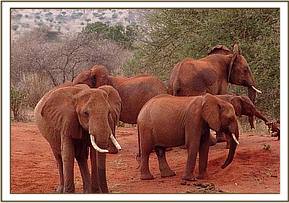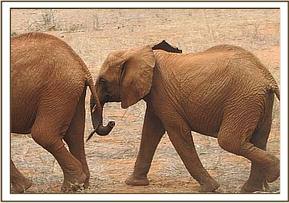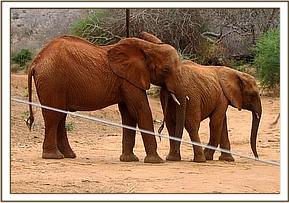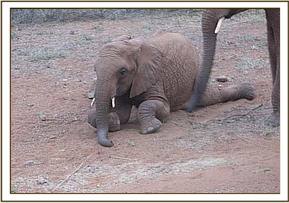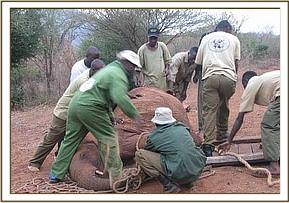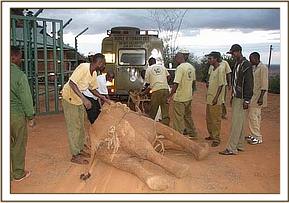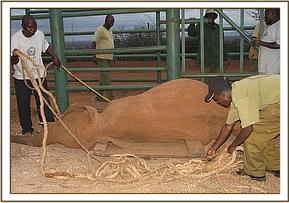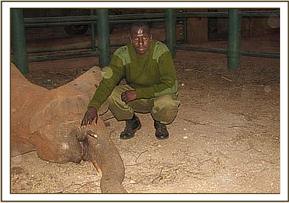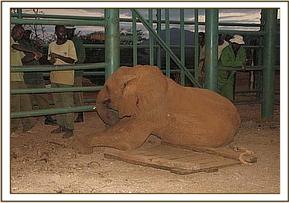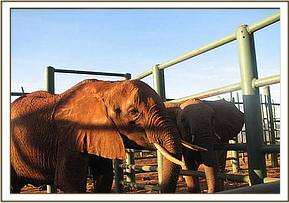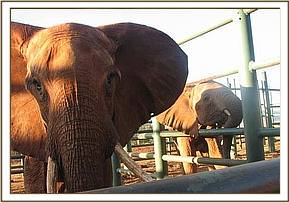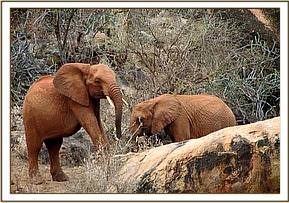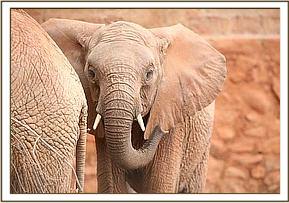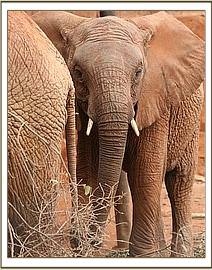



Has fully embraced her wild life in Tsavo East National Park
Current age
21 years old
Gender
Female
Rescued date
17 August 2007
Rescue location
Tsavo Ecosystem, Tsavo East NP
Date of birth (estimate)
30 August 2004
Reason orphaned
Man-made cause for separation
Age at rescue
2 years old (approx)
Current location
Living Wild
Our team along with Keepers from our Voi Unit immediately went to investigate and soon found the calf still alone, with no elephants in the area. The calf was older than expected, estimated 3 years old, but, in a place like Tsavo, incredibly vulnerable to predators. Her condition still looked good, and the fate of her family and mother until today remains a mystery. The team closely observed the calf for some hours and while waiting for the Sheldrick Wildlife Trust's Mobile Veterinary unit (funded by Vier Photen) to arrive on the scene she unexpectedly ambled close to the road. Spontaneously, despite the Veterinary team not being on site yet, the time seemed right for the Keepers to over power her in order to transport her back to the orphan stockades and the comfort of our older orphans and of course for her to have the benefit of supplementary feeding.
Orphans two and under cannot live without their mothers milk, and calves orphaned three years old and under seldom survive unless the conditions are incredibly favorable. This young female's chances of survival seemed slim with Tsavo presently in the height of the dry season, and at the mercy of the Tsavo lions without the protection of older elephants by her side. Julius bravely led the charge towards the calf but very quickly she overpowered him and had him pinned on the ground but fortunately, while bruised badly, he suffered no serious injuries, but the whole incident detracted from the rescue at hand and the calf fled into the dense undergrowth of the Voi River, and the Keepers scattered in all direction. Shortly thereafter the Mobile Veterinary unit arrived and continued to monitor the calf's movements while Julius was whisked off to a nearby hospital to be sure he had not suffered any further injuries aside from the obvious bruising.
As the day progressed she came into contact with a small wild group, consisting or three adult cows and their own calves, but while they were curious about the newcomer they did not seem interested in embracing her in their family unit and she remained peripheral, but close enough to the group to make another rescue attempt on that day impossible.
Our team along with Keepers from our Voi Unit immediately went to investigate and soon found the calf still alone, with no elephants in the area. The calf was older than expected, estimated 3 years old, but, in a place like Tsavo, incredibly vulnerable to predators. Her condition still looked good, and the fate of her family and mother until today remains a mystery. The team closely observed the calf for some hours and while waiting for the Sheldrick Wildlife Trust's Mobile Veterinary unit (funded by Vier Photen) to arrive on the scene she unexpectedly ambled close to the road. Spontaneously, despite the Veterinary team not being on site yet, the time seemed right for the Keepers to over power her in order to transport her back to the orphan stockades and the comfort of our older orphans and of course for her to have the benefit of supplementary feeding.

View diary updates from across all our orphan units as written by the Keepers

Itinyi is the last of the ‘Voi Kids’ to be rescued in the 2022 drought. He was orphaned after his mother was killed before his eyes — a heartbreaking note upon which to end a time of great hardship.
By adopting, you play a vital role in the life of an orphaned elephant, rhino, or giraffe — helping us provide the round-the-clock, loving attention each one needs and deserves over many years, so they can ultimately reclaim their place in the wild.
Your adoption supports the 100+ orphans in our care at any given time, covering the cost of milk and food supplies, Keepers' salaries, veterinary treatment, and other essentials.

Celebrate your adoption with a personalised certificate, ready for you or your lucky gift recipient to print and display!

Each month, we send a detailed update about our Orphans’ Project direct to your email inbox, featuring photos, stories, and special highlights.

From the latest Keepers’ Diaries to a downloadable image gallery and more, adopters have exclusive access to our content library.
